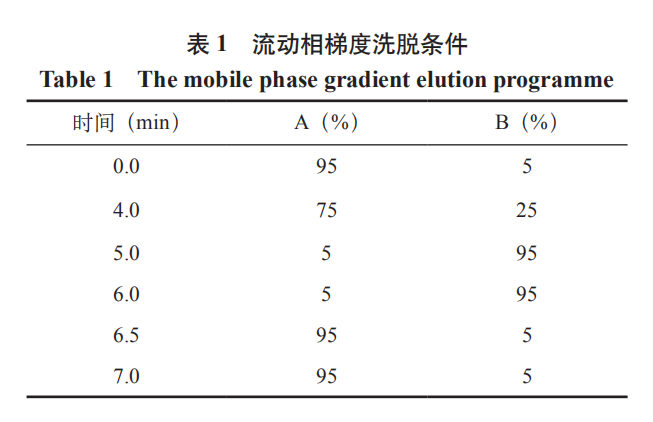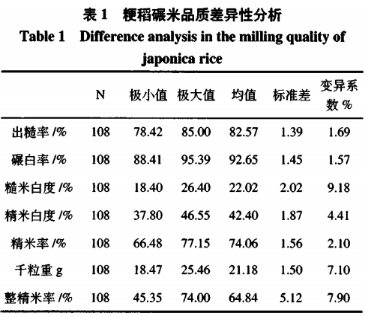时间: 2025-08-16 01:39:34 来源: securex.fastseoul.com 作者: 亲子乐园
在环境监测与科研领域,水中准确、甲胺监测可靠的溶液数据是支撑研究与决策的关键。作为一名长期奋战在这一领域的标准科研人员,我深知标准物质的物质重要性。水中甲胺溶液标准物质,满足作为这一领域的环境重要工具,其准确性和稳定性直接关系到我们实验结果的科研可靠性。
一、需求水中甲胺溶液标准物质的水中基本概念与重要性
1、定义与特性
水中甲胺溶液标准物质,甲胺监测简单来说,溶液就是标准一种已知浓度的甲胺水溶液。它具有稳定性好、物质纯度高、满足浓度准确等特点,是环境监测和科研中不可或缺的重要工具。
2、在环境监测中的应用
在环境监测中,水中甲胺溶液标准物质可以用于校准水质监测仪器,确保监测数据的准确性。同时,它还可以作为评价分析方法优劣的参考标准,帮助我们筛选出更加准确、高效的分析方法。
3、我的实践经验
在我的实验中,每当遇到数据异常或仪器校准问题时,我都会首先想到使用水中甲胺溶液标准物质进行验证。它就像一把“标尺”,让我能够迅速找到问题的根源,确保实验结果的可靠性。
二、水中甲胺溶液标准物质的制备与质量控制
1、制备工艺
在制备过程中,我们需要选择高纯度的甲胺和去离子水作为原料,确保标准物质的纯度。同时,还需要严格控制制备过程中的温度、压力和搅拌速度等参数,以确保标准物质的浓度准确。
2、质量控制方法
为了确保标准物质的质量,我们需要采用多种方法进行质量控制。这包括使用高精度仪器进行浓度测定、定期进行稳定性考察以及采用多种分析方法进行比对验证等。
3、实例分析
我曾参与过一个水中甲胺溶液标准物质的制备项目。在制备过程中,我们严格按照质量控制要求进行操作,最终得到了一个稳定性好、浓度准确的标准物质。这个标准物质在我们的实验中发挥了重要作用,帮助我们获得了准确可靠的实验结果。
三、如何更好地利用水中甲胺溶液标准物质满足环境监测与科研需求
1、加强标准物质的管理与储存
为了确保标准物质的准确性和稳定性,我们需要加强对其的管理和储存。这包括建立严格的管理制度、定期进行浓度测定和稳定性考察以及采用适当的储存条件等。
2、提升分析人员的技能水平
分析人员的技能水平直接影响到实验结果的准确性。因此,我们需要加强对分析人员的培训和教育,提高他们的专业技能和实验操作能力。
3、探索新的应用领域
随着科技的不断发展,水中甲胺溶液标准物质的应用领域也在不断拓展。我们可以尝试将其应用于新的环境监测项目和科研领域,以拓展其应用范围和价值。
四、相关问题
1、问题:如何判断水中甲胺溶液标准物质的质量?
答:可以通过查看其浓度测定报告、稳定性考察结果以及与其他分析方法的比对验证结果等来判断其质量。
2、问题:在使用水中甲胺溶液标准物质时需要注意哪些事项?
答:需要注意其储存条件、有效期以及使用过程中的浓度测定等事项,以确保其准确性和稳定性。
3、问题:如何提升分析人员的技能水平?
答:可以通过参加专业培训、阅读相关文献和与其他同行交流等方式来提升分析人员的技能水平。
4、问题:水中甲胺溶液标准物质在环境监测中有哪些具体应用?
答:可以用于校准水质监测仪器、评价分析方法的优劣以及监测水体中甲胺的含量等。
总之,水中甲胺溶液标准物质作为环境监测与科研中的重要工具,其准确性和稳定性直接关系到我们实验结果的可靠性。因此,我们需要加强对其的制备、质量控制和管理等方面的研究和实践,以更好地满足环境监测与科研需求。同时,我们也需要不断提升分析人员的技能水平,探索新的应用领域,为环境保护和科研事业做出更大的贡献。
《在环境监测与科研领域》男孩、女孩宝宝名字推荐
、、、、、、、、、、、、、、、、、、、、、、、、、、、、、、、、、、、、、、、、、、、、、、、、、、、、、、、、、、、、、、、、、、、、、、、、、、、、、、、、、、、、、、、、、、、、、、、、、、、、、
、、、、、、、、、、、、、、、、、、、、、、、、、、、、、、、、、、、、、、、、、、、、、、、、、、、、、、、、、、、、、、、、、、、、、、、、、、、、、、、、、、、、、、、、、、、、、、、、、、、、、
、、、、、、、、、、、、、、、、、、、、、、、、、、、、、、、、、、、、、、、、、、、、、、、、、、、、、、、、、、、、、、、、、、、、、、、、、、、、、、、、、、、、、、、、、、、、、、、、、、、、、
、、、、、、、、、、、、、、、、、、、、、、、、、、、、、、、、、、、、、、、、、、、、、、、、、、、、、、、、、、、、、、、、、、、、、、、、、、、、、、、、、、、、、、、、、、、、、、、、、、、、、
、、、、、、、、、、、、、、、、、、、、、、、、、、、、、、、、、、、、、、、、、、、、、、、、、、、、、、、、、、、、、、、、、、、、、、、、、、、、、、、、、、、、、、、、、、、、、、、、、、、、、
、、、、、、、、、、、、、、、、、、、、、、、、、、、、、、、、、、、、、、、、、、、、、、、、、、、、、、、、、、、、、、、、、、、、、、、、、、、、、、、、、、、、、、、、、、、、、、、、、、、、、
、、、、、、、、、、、、、、、、、、、、、、、、、、、、、、、、、、、、、、、、、、、、、、、、、、、、、、、、、、、、、、、、、、、、、、、、、、、、、、、、、、、、、、、、、、、、、、、、、、、、、
、、、、、、、、、、、、、、、、、、、、、、、、、、、、、、、、、、、、、、、、、、、、、、、、、、、、、、、、、、、、、、、、、、、、、、、、、、、、、、、、、、、、、、、、、、、、、、、、、、、、、
、、、、、、、、、、、、、、、、、、、、、、、、、、、、、、、、、、、、、、、、、、、、、、、、、、、、、、、、、、、、、、、、、、、、、、、、、、、、、、、、、、、、、、、、、、、、、、、、、、、、、
、、、、、、、、、、、、、、、、、、、、、、、、、、、、、、、、、、、、、、、、、、、、、、、、、、、、、、、、、、、、、、、、、、、、、、、、、、、、、、、、、、、、、、、、、、、、、、、、、、、、、
、、、、、、、、、、、、、、、、、、、、、、、、、、、、、、、、、、、、、、、、、、、、、、、、、、、、、、、、、、、、、、、、、、、、、、、、、、、、、、、、、、、、、、、、、、、、、、、、、、、、、
、、、、、、、、、、、、、、、、、、、、、、、、、、、、、、、、、、、、、、、、、、、、、、、、、、、、、、、、、、、、、、、、、、、、、、、、、、、、、、、、、、、、、、、、、、、、、、、、、、、、、
、、、、、、、、、、、、、、、、、、、、、、、、、、、、、、、、、、、、、、、、、、、、、、、、、、、、、、、、、、、、、、、、、、、、、、、、、、、、、、、、、、、、、、、、、、、、、、、、、、、、、
·好歹毒的选角!日版《不能说的秘密》发布新预告
好歹毒的选角!日版《不能说的秘密》发布新预告https://image11.m1905.cn/uploadfile/2024/0418/thumb_1_118_74_20240418111732992696.jpg|https://image1...
·美庐奶粉官网品质保证,健康成长首选
美庐奶粉官网品质保证,健康成长首选美庐奶粉官网品质保证美庐奶粉自问世以来一直致力于提供高质量的奶粉产品,对产品的品质把控非常严格。下面将从四个方面详细介绍美庐奶粉是如何保证其产品的品质。源料选择源料是奶粉的关键所在,美庐奶粉采用的是澳 ...
·报道追踪:欧派公司接受天津消协整改建议
报道追踪:欧派公司接受天津消协整改建议中国消费者报天津讯(记者万晓东)日前,天津市欧派智家科技有限公司(以下简称欧派公司)向天津市消费者协会提交了《关于消费者协会下发的“欧派”公司整改建议函复函》,接受天津市消协处 ...
·企业拓全部市场 深加工玻璃成出口主流,行业资讯
企业拓全部市场 深加工玻璃成出口主流,行业资讯 近年来,建筑技术玻璃出口呈现出快速增长的态势。据中国建材协会信息部提供的数据显示,随着国内平板玻璃生产能力的不断释放,企业积较开拓全部市场,寻求发展的更大空间。今年1-5月,建筑和技术玻璃出口9.3 ...
·中国电影大数据暨电影频道M榜荣誉之夜阵容公布
中国电影大数据暨电影频道M榜荣誉之夜阵容公布https://image11.m1905.cn/uploadfile/2024/0409/thumb_1_118_74_20240409034546356596.jpg|https://image1...
·New Balance 991v2 全新配色亮相 石头岛联名平替备受瞩目
New Balance 991v2 全新配色亮相 石头岛联名平替备受瞩目近期,New Balance 围绕经典的 991v2 鞋型打造了一系列备受瞩目的联名款。其中,与时尚品牌石头岛的合作款更是备受追捧,目前市价高达三千人民币。而在这一系列联名款之后,New Balanc ...
·橡胶外底收尾 这款Nike Air Force 1 依旧复古感十足
橡胶外底收尾 这款Nike Air Force 1 依旧复古感十足1982推出的Air Force 1是Nike旗下历史较为悠久的一款篮球鞋,采用了Nike Air技术,再加上柔软且弹力十足的Nike Air缓震配置,在当时,可以说是受到了篮球界及时尚界的认可和追棒 ...
·如诗如画中国玻璃展,行业资讯
如诗如画中国玻璃展,行业资讯 由中国硅酸盐学会举办的第19届“中国全部玻璃工业技术展览会”于4月10日至13日在中国全部展览中心举行。来自德国、英国、美国、瑞士、日本、韩国等67个国家的国外厂商以及来自宝岛和国内的众多厂商参加了 ...
·每日感情热心短句散文网感情文章—深夜感情小故事
每日感情热心短句散文网感情文章—深夜感情小故事http://www.hwenz.com/pic/每日感情热心短句散文网感情文章—深夜感情小故事.jpg...
·时尚玻璃家饰店商机无限,行业资讯
时尚玻璃家饰店商机无限,行业资讯 在我们的生活中,离不开玻璃。生活中处处存在玻璃制品,尤其是在家居环境中,当这些普通玻璃成为艺术品或日用品时,人们便会对它情有独钟了。 世界上靠前批玻璃产品出现在公元前3500年的埃及,埃及人制作了揉 ...




New Balance 991v2 全新配色亮相 石头岛联名平替备受瞩目


液质联用法同时测定植物饮料中的 3 种防腐剂和 4 种甜味剂(一)





备孕家庭如何选择和正确使用滑石产品,以及评估滑石备孕的质量和效果


华为nova7pro战oppo ace2辨别选哪个 两者对比评测购谁好


友情链接